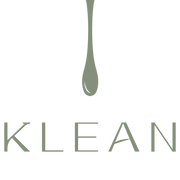TRACK YOUR HYDRATION
Stay Hydrated. Stay Healthy.
Monitor your daily water intake to support energy, focus, and overall wellness. Our Water Tracking guide keeps you on course for optimal hydration and health.
Why Hydration Matters?
Water is the foundation of life, essential to every bodily function and necessary for sustaining health. Known scientifically as Dihydrogen Monoxide (H₂O), water is the most critical biological solvent on Earth. It supports all living things and is integral to every cellular process in the human body. Without adequate hydration, the body’s systems falter, leading to a range of health issues.
The Science Behind Hydration
Water is a polar molecule, meaning it has positively and negatively charged ends. This polarity allows it to form strong bonds with other molecules, including salts, proteins, carbohydrates, and nucleic acids, making it essential for countless biological processes.
Functions of Water in the Body
- Regulates Bodily Functions: Maintains fluid balance, aiding in digestion, temperature regulation, and organ function.
- Enhances Digestion: Breaks down food for absorption and supports the elimination of waste.
- Flushes Out Toxins: Helps eliminate toxins from the body, improving kidney function and skin health.
- Aids in Weight Management: Drinking water before meals can reduce appetite and support weight loss.
- Improves Cognitive Function: Enhances focus, mental clarity, and overall brain function.
- Boosts Physical Performance: Prevents fatigue and muscle cramps, supporting muscle and joint function.
- Promotes Healthy Skin: Keeps skin hydrated, improving texture, elasticity, and reducing signs of aging.
Health Benefits of Proper Hydration
Regulates Bodily Functions
Maintains fluid balance, aiding in digestion, temperature regulation, and organ function.
Enhances Digestion
Breaks down food for absorption and supports the elimination of waste.
Flushes Out Toxins
Helps eliminate toxins from the body, improving kidney function and skin health.
Aids in Weight Management
Drinking water before meals can reduce appetite and support weight loss.
Improves Cognitive Function
Enhances focus, mental clarity, and overall brain function.
Boosts Physical Performance
Prevents fatigue and muscle cramps, supporting muscle and joint function.
Promotes Healthy Skin
Keeps skin hydrated, improving texture, elasticity, and reducing signs of aging.
Tips for Staying Hydrated
Daily Water Intake Recommendations
- Men: Approximately 15.5 cups (3.9 liters) of water daily.
- Women: Approximately 11.5 cups (2.9 liters) of water daily.
Advanced Hydration Strategies
Electrolyte Balance
- Importance: Electrolytes like sodium, potassium, and magnesium are crucial for fluid balance, muscle function, and pH regulation.
- Sources: Electrolytes can be replenished through electrolyte-rich drinks, fruits, vegetables, and dairy products.
Hydration During Exercise
- Before Exercise: Drink 400-800ml of water 2-3 hours before activity.
- During Exercise: Consume 100-300ml of water every 10-20 minutes.
- After Exercise: Drink 250-500ml of water for every pound of body weight lost during physical activity.
Special Considerations
- High Altitudes: Increase water intake due to higher water loss through respiration.
- Hot Weather: Compensate for additional sweat loss by drinking more water.
- Illness: Conditions like fever, vomiting, and diarrhoea require increased fluid intake.
Common Signs of Dehydration
- High Altitudes: Increase water intake due to higher water loss through respiration.
- Hot Weather: Compensate for additional sweat loss by drinking more water.
- Illness: Conditions like fever, vomiting, and diarrhoea require increased fluid intake.
Health Conditions Related to Hydration
Urinary Tract Health
Reduces the risk of UTIs by flushing bacteria from the urinary tract.
Heart Health
Helps regulate blood pressure and supports circulatory efficiency.
Joint Health
Lubricates joints and reduces inflammation.
Mental Health
Reduces stress and anxiety, supports cognitive function, and prevents dehydration-related mental fog.
Kidney Health
- Prevents kidney stones by diluting substances that form stones.
- Supports chronic kidney disease management by reducing the kidneys’ workload.


